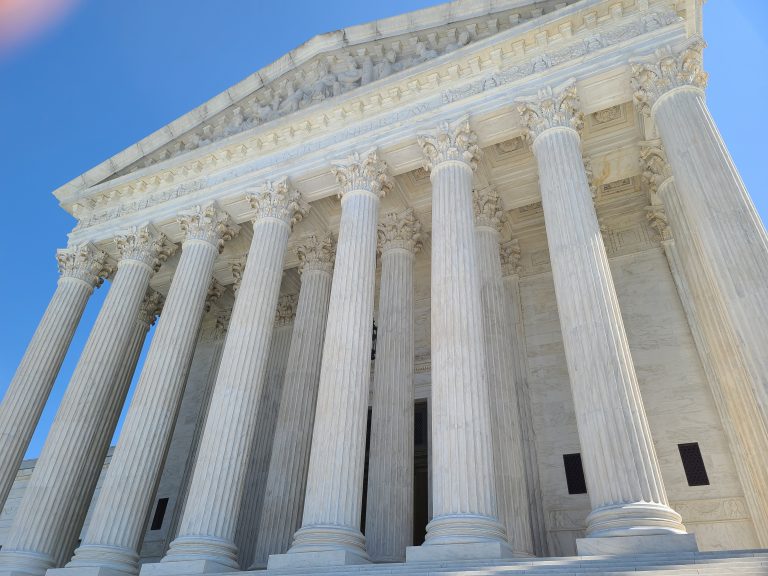The nation’s highest court will soon decide whether the bump stock ban is constitutional.
The Supreme Court announced on Friday it would take up Garland v. Cargill. That case stems from former President Donald Trump’s decision to unilaterally ban bump stocks in the wake of the 2017 Las Vegas shooting. The ban was struck down by an en banc panel of the Fifth Circuit Court of Appeals as an overreach of executive authority back in January.
“A plain reading of the statutory language, paired with close consideration of the mechanics of a semi-automatic firearm, reveals that a bump stock is excluded from the technical definition of ‘machinegun’ set forth in the Gun Control Act and National Firearms Act,” Judge Jennifer Walker Elrod wrote for the majority in Cargill.
While bump stocks are firearms accessories, the case doesn’t center around the Second Amendment. Instead, it is primarily about the limits of executive agencies to reinterpret federal laws without congressional action. It centers around whether the ATF overstepped its power when it reclassified bump stocks as “machineguns” under the National Firearms Act of 1934 (NFA), effectively making them illegal to possess.
The controversy stems from the ATF’s flip-flopping on whether bump stocks are “machineguns” under the NFA. When bump stocks came on the market, it said the devices were merely stocks and not subject to NFA regulations but changed its tune after the fallout from the Las Vegas shooting, where several guns recovered after the attack had the stocks. The NFA definition of machinegun centers on whether a gun can fire “automatically more than one shot by a single function of the trigger.” Gun-rights advocates argue bump stocks don’t fit the definition because they work by helping a shooter pull the trigger in more rapid succession than with traditional shooting techniques but still require the trigger to be pulled every time a round is fired.
Federal courts have come down on either side of that question since President Trump initiated the reclassification. Trump has stood by the ban during his run for the 2024 Republican presidential nomination. During a CNN town hall in May, he argued the move was acceptable because bump stocks don’t matter much, and the NRA approved of the ban.
“As you know, the bump stocks are actually a very unimportant thing,” Trump said. “NRA I went with them, and they said, ‘it doesn’t mean anything, or actually all they do is teach you how to shoot very inaccurately.’ So, we did that.”
That puts him on the same page as President Joe Biden, who has continued to defend the action in court since succeeding Trump in 2021. Biden has also modeled several of his own executive actions off the bump stock ban, including the “ghost gun” and pistol-brace bans. How the Court comes down on the bump stock ban could determine whether those other executive actions banning certain gun parts through reclassification are likely to survive scrutiny.
The Fifth Circuit rejected the Biden Administration’s arguments for the bump stock ban when it heard the case last year.
“As an initial matter, it purports to allow ATF—rather than Congress—to set forth the scope of criminal prohibitions,” Judge Elrod wrote. “Indeed, the Government would outlaw bump stocks by administrative fiat even though the very same agency routinely interpreted the ban on machineguns as not applying to the type of bump stocks at issue here. Nor can we say that the statutory definition unambiguously supports the Government’s interpretation.”
The majority said ATF’s reasoning could be used to justify reclassifying all semi-automatic firearms as “machineguns.”
“We reiterate that a shooter can bump fire an ordinary semi-automatic rifle even without a bump stock,” Elrod wrote. “But nobody, not even the Government, contends that semi-automatic rifles are machineguns. That concession damns the Government’s position.”
The decision wasn’t unanimous, though. Judge Stephen Higginson, joined by judges James Dennis and Graves, dissented by arguing the stocks did fit the definition of machinegun. The group also accused the court of “legaliz[ing] an instrument of mass murder.” They also noted several other appeals courts previously upheld the ban.
“Today, our court extends lenity, once a rule of last resort, to rewrite a vital public safety statute banning machineguns since 1934,” Higgenson wrote. “In conflict with three other courts of appeals, our court employs its new lenity regime to carve out from federal firearms regulation the bump stock—a device that helped the Las Vegas shooter fire over a thousand rounds during an eleven-minute long attack, at times shooting about nine bullets per second, killing at least 58 people and wounding hundreds more.”
The Biden Administration appealed the decision to the High Court, which will now decide which of those appeals courts was correct.
UPDATE 11-03-2023 3:26 PM: This piece has been updated with more information about the case.






